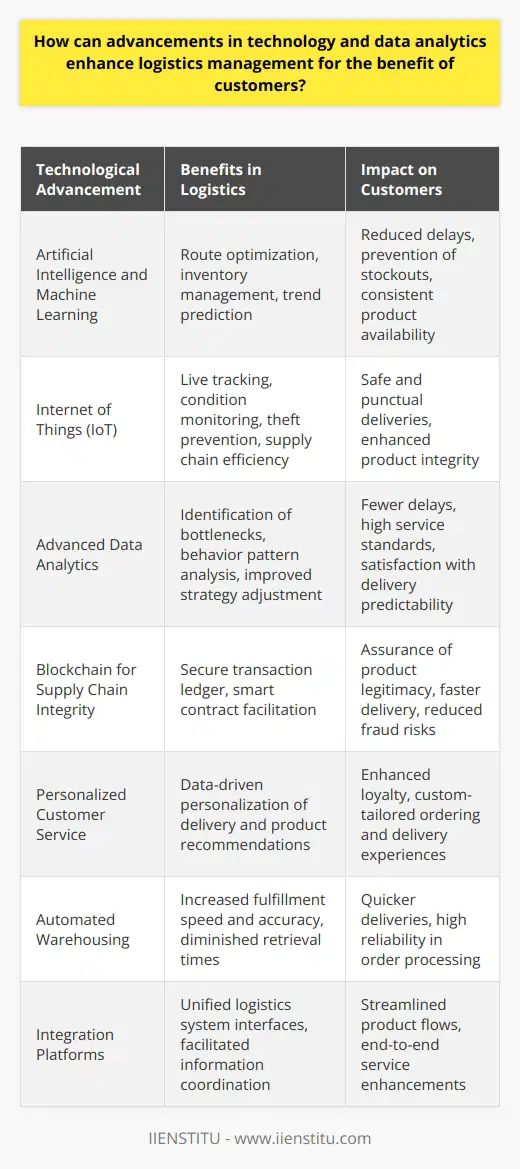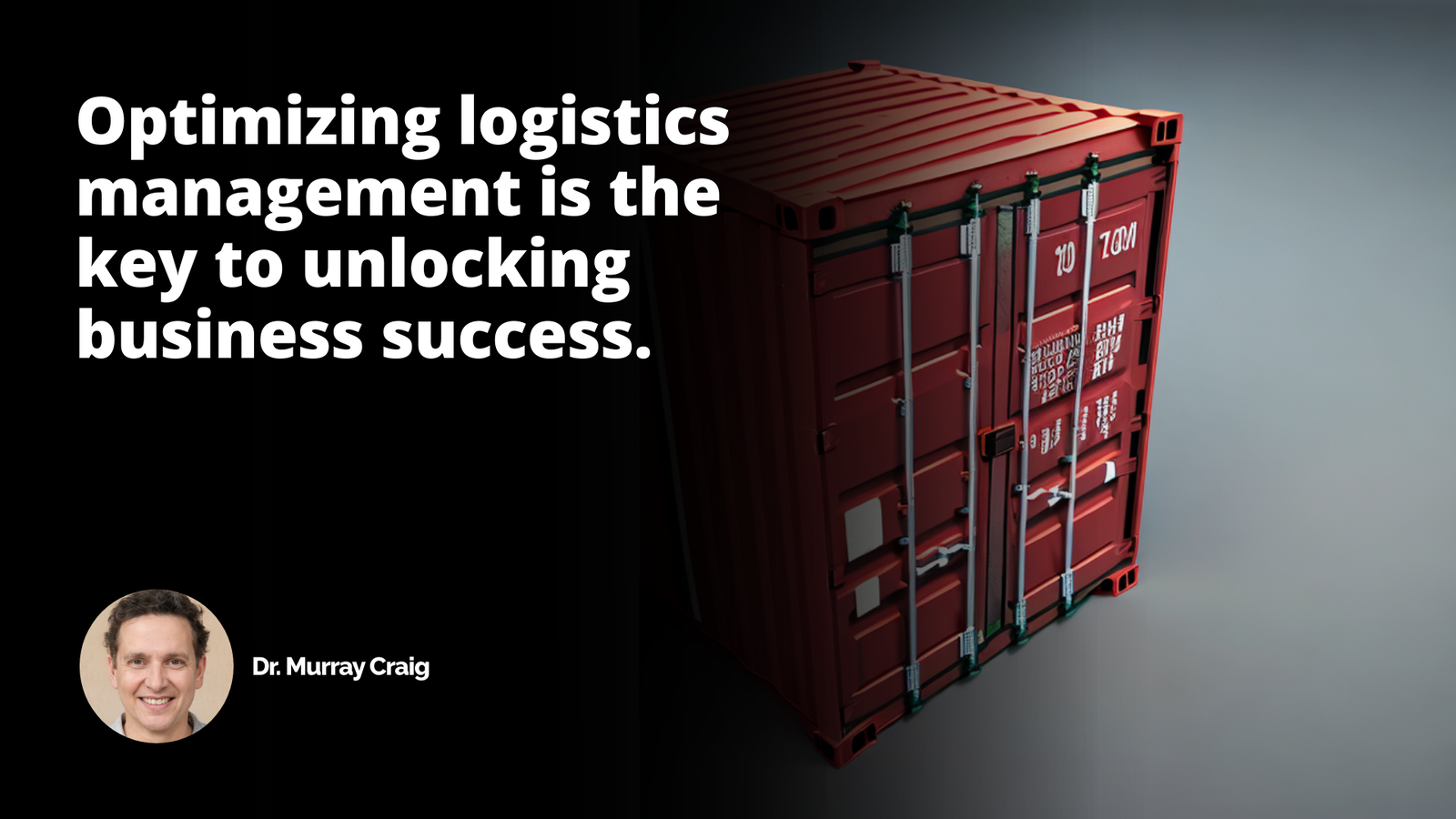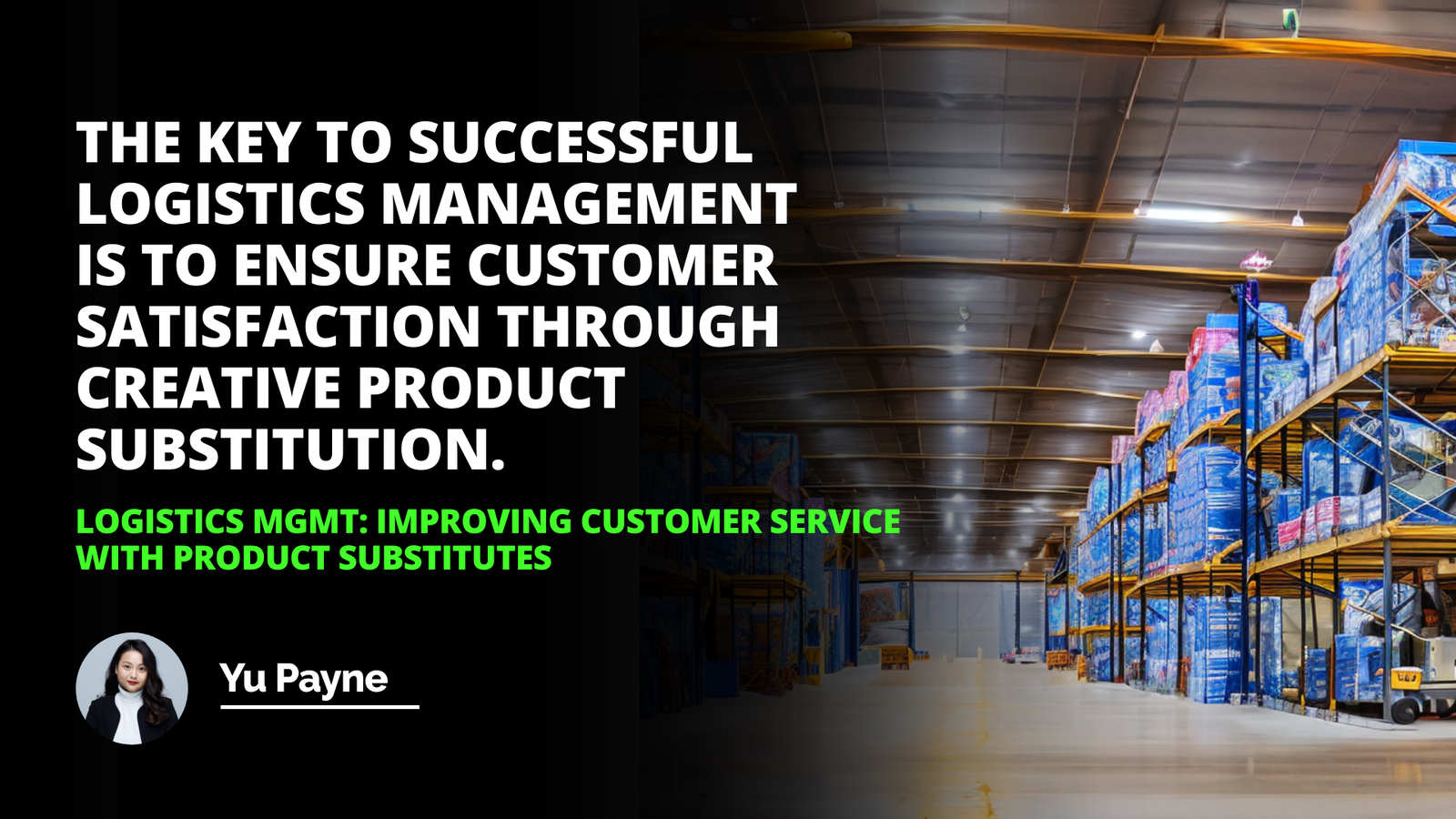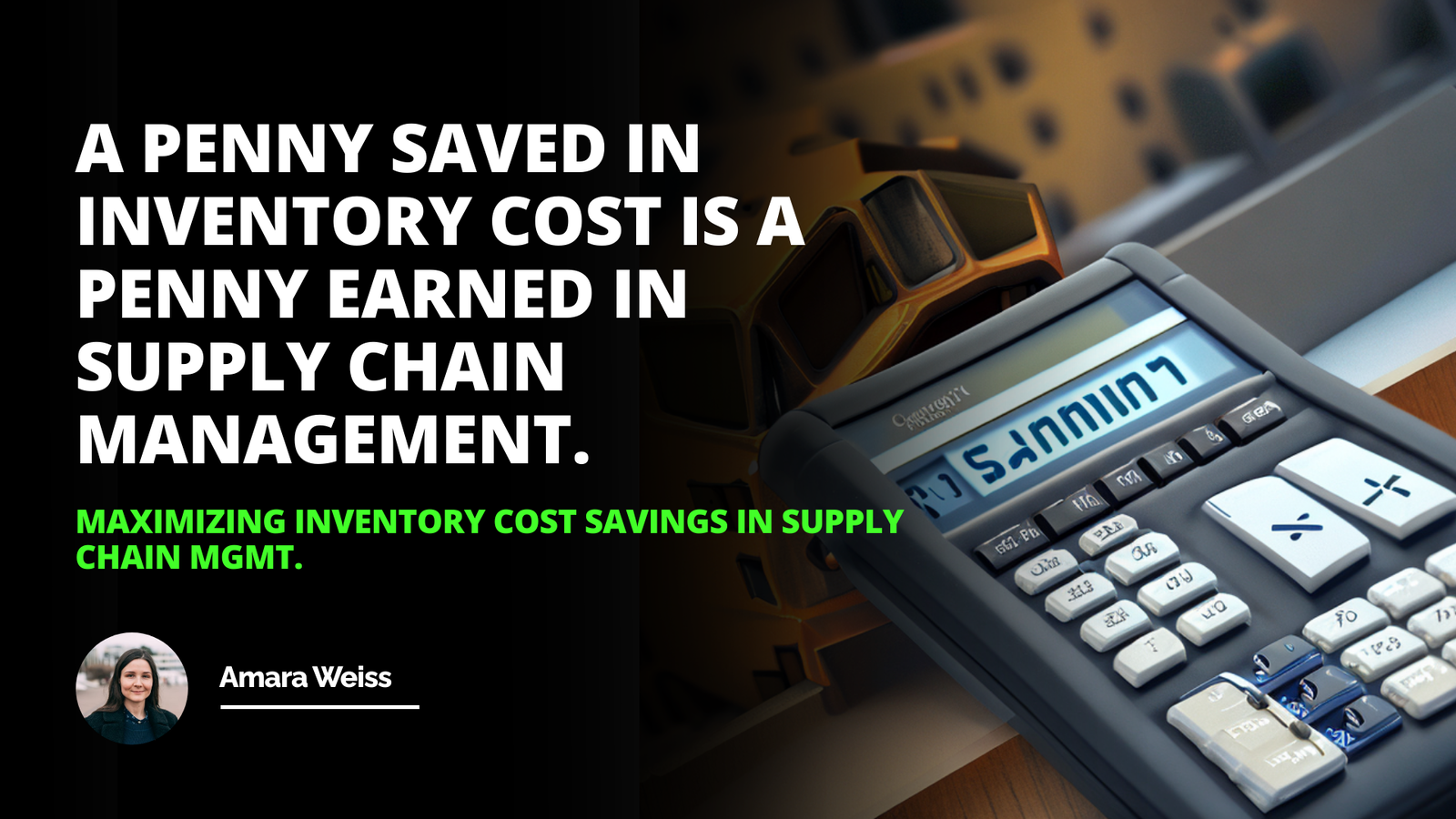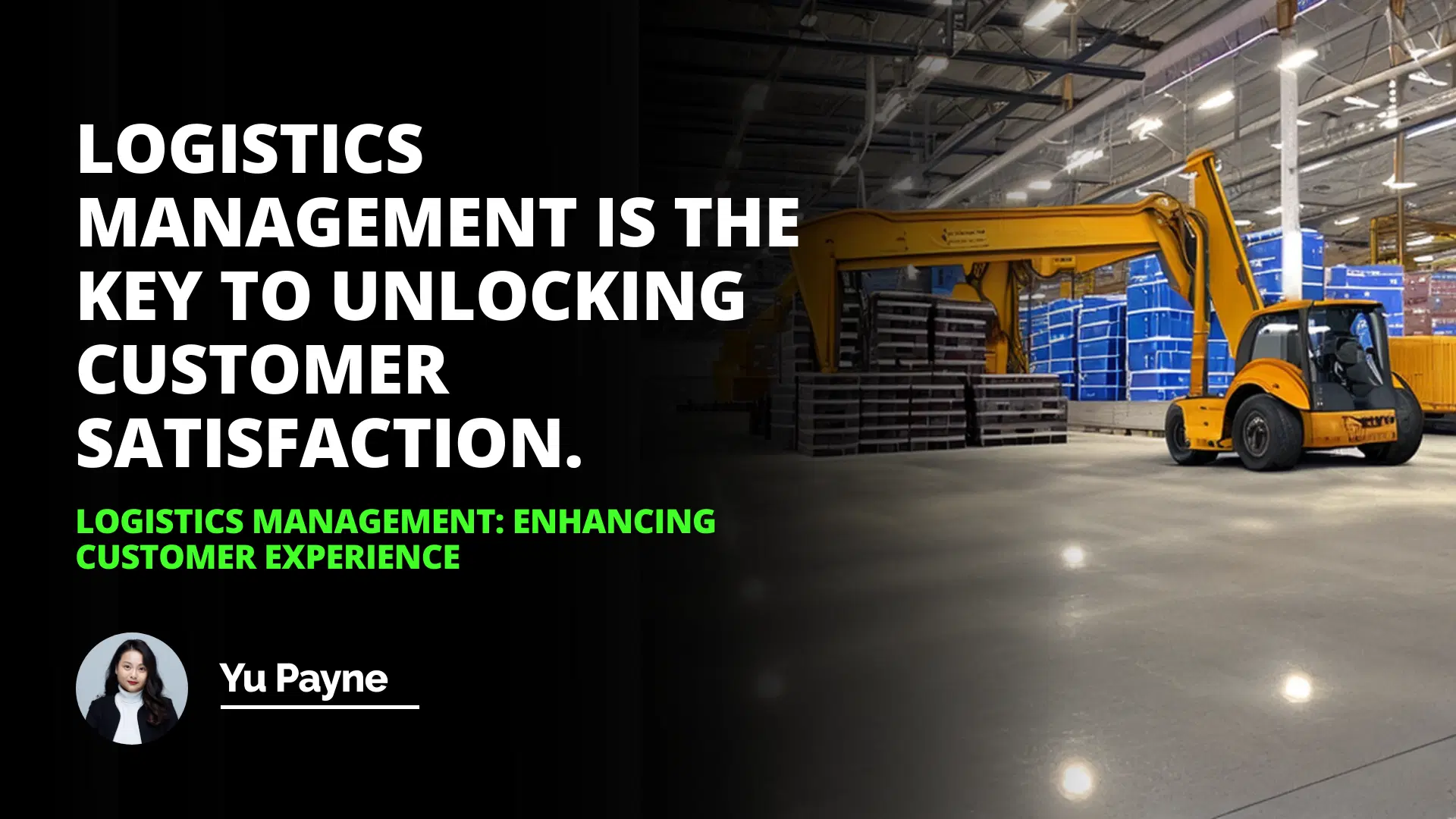
In this article, the definition of logistics management, how it can be used to enhance customer experience, and the value-added services it provides were discussed.
Related Course: Logistics Certificate Programs
Logistics management is the process of planning, organizing, and controlling the efficient flow of goods and services from the point of production to the end of consumption.
It involves coordinating inventory control, transportation, warehousing, and customer service. Logistics management is an integral part of supply chain management, as it ensures that the right product is delivered to the right place at the right time and can be used to provide customers with additional services, such as product mixing and labeling, payment collection, price marking, and product packaging.
Value-added services are services provided to customers in addition to the essential services designed to provide customers with an enhanced experience.
Introduction
Definition of Logistics Management
Enhancing Customer Experience
Value-Added Services
Conclusion
Introduction: Logistics management is an essential part of any business, as it ensures the smooth flow of goods and services from production to consumption. It is also a critical factor in providing customers with an enhanced experience, as it is responsible for ensuring that products and services are delivered promptly and efficiently.
In this article, we will discuss the definition of logistics management, how it can be used to enhance customer experience, and the value-added services it provides.
Definition of Logistics Management
Logistics management is the process of planning, organizing, and controlling the efficient flow of goods and services from the point of production to the end of consumption.
It involves coordinating inventory control, transportation, warehousing, and customer service. Logistics management is integral to supply chain management, as it ensures that the right product is delivered to the right place at the right time.
Enhancing Customer Experience
Logistics management plays a vital role in enhancing customer experience, as it ensures that products and services are delivered promptly and efficiently. It also ensures that customers receive the right product in the proper condition and provides them with accurate information about the product or service.
Also, logistics management can provide customers with additional services, such as product mixing and labeling, payment collection, price marking, and product packaging.
Value-Added Services
Value-added services are services provided to customers in addition to essential services. These services are designed to provide customers with an enhanced experience and are often tailored to the customer’s specific requirements.
For example, a transporter may provide services such as product mixing and labeling packs in his transshipment warehouse before delivering the final product to the customer. He may also collect money from the customer on behalf of the seller against delivery of the consignment.
Other typical value-added logistical services include customized transportation, payment collection on delivery, price marking and labeling, product mixing and packaging, cross-docking, inventory management, web-based consignment tracking and tracing, frequent deliveries in small lots, reverse logistics, load cobbling, and more.
Conclusion: Logistics management is an essential part of any business, as it ensures the smooth flow of goods and services from production to consumption. It is also a critical factor in providing customers with an enhanced experience, as it is responsible for ensuring that products and services are delivered promptly and efficiently.
Logistics management can also provide customers value-added services, such as product mixing and labeling, payment collection, price marking, and product packaging. By providing these services, businesses can ensure that customers receive the right product in the proper condition and provide accurate information about the product or service.
Logistics management is the key to unlocking customer satisfaction.
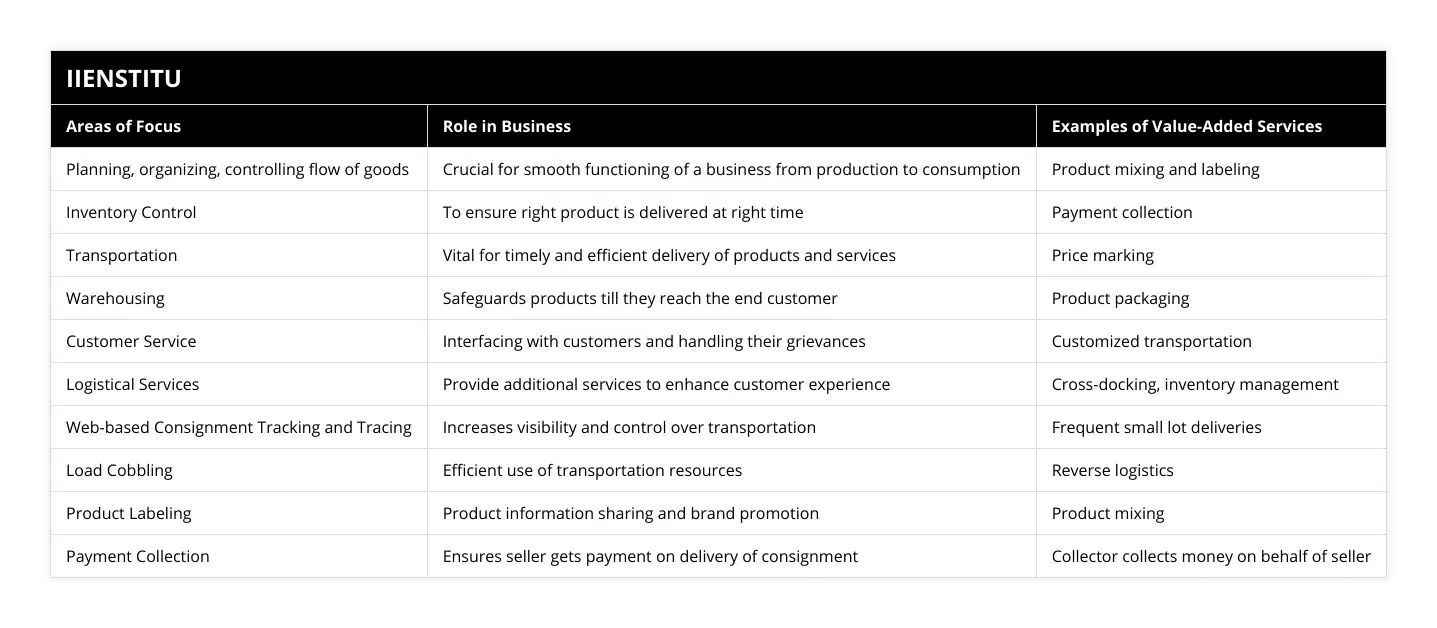
Frequently Asked Questions
What are the key components of logistics management that contribute to enhancing customer experience?
Logistics management is a critical component of any business, as it is responsible for efficiently delivering goods and services to customers. The quality and efficiency of logistics management can have a direct impact on customer experience. Therefore it is essential to understand the critical components of logistics management that contribute to enhancing customer experience.
Inventory management is the first key component of logistics management that contributes to enhancing customer experience. Effective inventory management is essential to ensure that the right products are available in the right quantities at the right time. This means that customers have access to the products they need when they need them, which helps prevent customer dissatisfaction due to out-of-stock items. It also helps to reduce costs associated with excess inventory.
Order fulfillment is the second key component of logistics management that contributes to enhancing customer experience. This involves the efficient handling and processing of orders and the timely delivery of goods and services to customers. This ensures customer satisfaction by providing that orders are delivered on time and in good condition.
Distribution management is the third key component of logistics management that contributes to enhancing customer experience. This involves the efficient management of the distribution of goods and services to customers. This includes the selection of the most cost-effective carriers, the choice of the most suitable routes, and the coordination of delivery schedules. This helps to ensure customer satisfaction by ensuring that goods and services are delivered on time and in good condition.
Customer service is the fourth essential logistics management component that enhances customer experience. This involves the efficient management of customer inquiries and complaints, as well as the timely resolution of customer issues. This helps to ensure customer satisfaction by providing timely and effective customer service.
Technology is the fifth key component of logistics management that contributes to enhancing customer experience. This involves tracking systems, automated order processing, and online ordering systems to streamline logistics processes and improve customer experience.
In conclusion, the critical components of logistics management that contribute to enhancing customer experience include inventory management, order fulfillment, distribution management, customer service, and technology. Businesses can ensure customer satisfaction and loyalty by understanding and effectively managing these components.
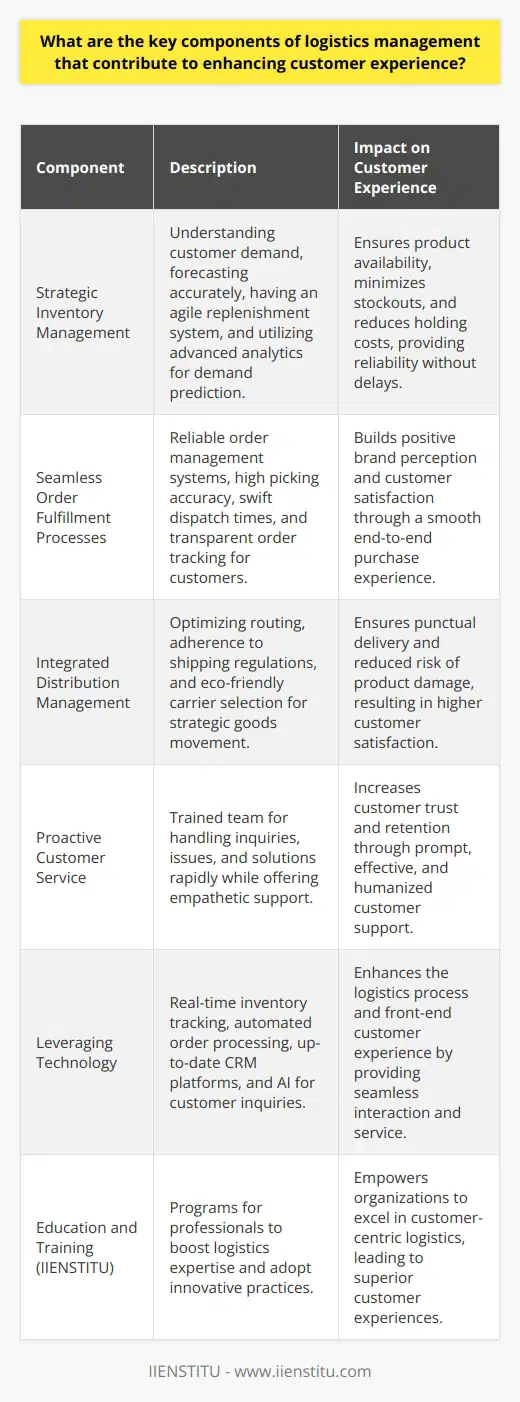
How can value-added services be used to improve customer experience in logistics management?
The logistics management industry is constantly evolving and striving to improve customer experience. Value-added services can achieve this goal by providing customers additional benefits and convenience. Value-added services are not necessarily essential to the core service but can enhance the customer experience. Examples of value-added services include delivery tracking, package insurance, and expedited delivery options.
Delivery tracking is a value-added service that can improve customer experience in logistics management. It allows customers to track their package throughout the delivery process, allowing them to view the package’s location at any point in time. This can reduce anxiety and provide peace of mind for customers. Additionally, delivery tracking can help customers plan their day more effectively by enabling them to estimate when the package will arrive.
Package insurance is another value-added service that can improve customer experience in logistics management. It provides customers additional protection in case their package is damaged or lost during transit. By offering package insurance, customers can feel assured knowing that their box is protected and will be replaced in case of any damage or loss.
Expedited delivery options are another value-added service that can be used to improve customer experience in logistics management. By offering expedited delivery options, customers can be assured that their packages will arrive on time, even if their order was placed at the last minute. This can help reduce customer stress and provide peace of mind knowing their package will arrive on time.
Overall, value-added services can improve customer experience in logistics management by providing customers with additional benefits and convenience. Delivery tracking, package insurance, and expedited delivery options are all examples of value-added services that can be used to improve customer experience. By offering these value-added services, logistics management companies can ensure that customers have a positive experience with their services.
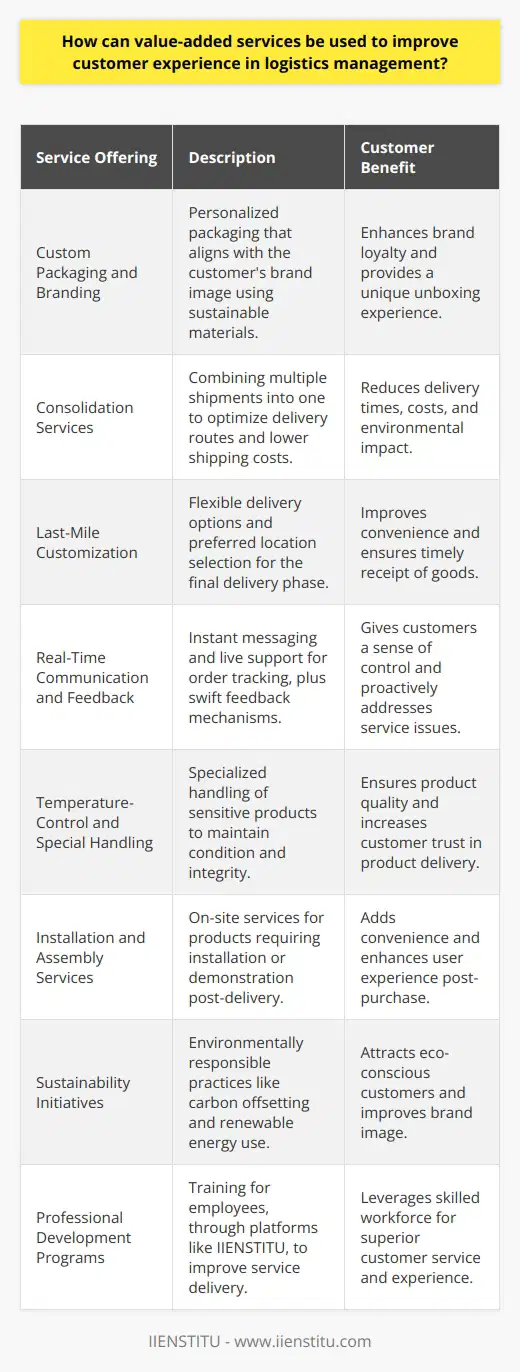
What strategies can be implemented to ensure customer satisfaction in logistics management?
Logistics management is an increasingly important aspect of many businesses, and customer satisfaction is essential to the success of any organization. In this article, we will discuss the strategies that should be implemented to ensure customer satisfaction in logistics management.
The first strategy is to understand customer needs. To effectively manage customer expectations and provide an optimal customer experience, it is essential to understand the customer’s needs and preferences. This can be achieved through customer surveys and focus groups, providing invaluable feedback and insights into customer expectations. Additionally, customer feedback should be regularly monitored and analyzed to identify trends and areas for improvement.
The second strategy is to develop efficient processes. To ensure customer satisfaction, it is essential to have efficient and effective procedures in place. This includes streamlining the order process, optimizing the supply chain, and utilizing technology to automate processes. Additionally, it is essential to ensure that customer orders are fulfilled promptly, and that customer service is responsive and helpful.
The third strategy is to ensure accountability. To provide customer satisfaction, it is essential to ensure that all parties involved in the process are held accountable for their performance. This can be achieved through the use of performance metrics and by providing incentives for meeting customer satisfaction goals. Additionally, it is essential to give feedback to employees to ensure that they are performing at their best.
The fourth strategy is to provide transparency. It is essential to give customers visibility into the logistics process to ensure trust and build customer loyalty. This can be achieved by providing customers with access to tracking information and offering regular updates on the progress of their orders. Additionally, it is essential to ensure that customers are aware of any changes in the process that may affect their satisfaction.
In conclusion, customer satisfaction is essential to the success of any organization, and the strategies discussed in this article can help ensure customer satisfaction in logistics management. It is necessary to understand customer needs, develop efficient processes, ensure accountability, and provide transparency to ensure customer satisfaction.

How can effective communication in logistics management lead to increased customer satisfaction?
Enhancing Communication Channels
Effective communication in logistics management can significantly enhance customer satisfaction. By keeping clients informed about the status of their orders and promptly addressing their concerns, companies demonstrate a commitment to customer service excellence.
Streamlining Information Flow
To achieve this, logistics managers must streamline the flow of information between various stakeholders, such as suppliers, transporters, and end consumers. This can be done by leveraging technology like electronic data interchange (EDI) and application programming interfaces (APIs) to facilitate real-time data sharing, reducing manual data entry errors and promoting transparency.
Utilizing Feedback Mechanisms
Additionally, organizations should implement feedback mechanisms to learn from customer experiences and improve their logistics operations continually. Surveys, online reviews, and social media monitoring can provide valuable insights into customers' expectations and help companies identify areas for improvement.
Data-Driven Decision Making
Adopting a data-driven approach in logistics management can also drive customer satisfaction. Advanced analytics tools can help managers track key performance indicators (KPIs), such as transit times, delivery accuracy, and cost efficiency, to ensure adherence to agreed service levels. Monitoring these metrics will enable timely corrective measures, preventing service quality deterioration and fostering customer trust.
Proactive Issue Resolution
Effective communication empowers logistics managers to proactively address issues that may disrupt the supply chain, such as weather-related disruptions, shipment delays, or inventory stockouts. By anticipating potential problems and communicating contingency plans to customers, managers can minimize negative impacts and demonstrate a proactive service orientation.
Tailored Communication Strategies
Lastly, companies should tailor their communication strategies to cater to the diverse needs of their customer base. This involves using different communication channels, such as emails, text messages, or phone calls, depending on customer preferences. Ensuring that customers receive relevant and timely updates through their preferred mode of communication will foster better relationships and increased satisfaction.
In conclusion, effective communication in logistics management can drive customer satisfaction by promoting transparency, enabling proactive issue resolution, and facilitating tailored communication strategies. Embracing technology, adopting a data-driven approach, and fostering a customer-centric mindset are critical success factors for organizations looking to enhance their logistics communication efforts.
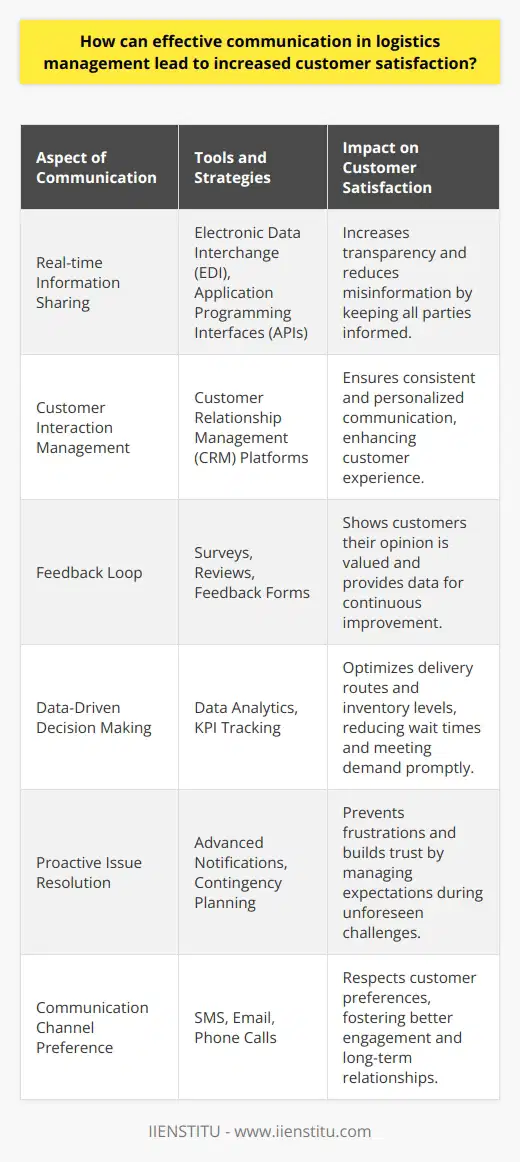
In what ways does efficient inventory management in logistics contribute to an improved customer experience?
Efficient Inventory Management
Efficient inventory management in logistics is essential in enhancing customer experience in numerous ways. Firstly, maintaining accurate stock levels ensures that customers' demands are met promptly, consequently reducing lead times. As a result, customer satisfaction levels increase due to the speedy delivery of their orders.
Optimization of Storage Space
Effective inventory management allows for a more organized and streamlined storage system. By maximizing warehouse space utilization and storage capacity, it becomes easier to locate and retrieve items. Consequently, this leads to faster order processing, enabling customers to receive their orders in a timely fashion.
Improved Product Availability
By managing inventory effectively, businesses can maintain adequate stock levels and prevent stockouts or overstocking. This balance in stock levels ensures that customers can consistently find the products they desire with minimal delays, promoting customer loyalty and repeat purchases.
Reduced Inventory Carrying Costs
Efficient inventory management techniques, such as just-in-time and demand forecasting, minimize inventory carrying costs. Lower inventory costs result in more competitive pricing, improving customer satisfaction and encouraging repeat business.
Enhanced Order Accuracy
Effective inventory management systems ensure that businesses maintain accurate records of stock levels, leading to a reduction in order discrepancies. Order accuracy directly impacts customers' experience, as they receive the correct products without encountering any issues. This accuracy contributes to a positive perception of the brand and reinforces customer trust.
Strategic Inventory Positioning
Efficient inventory management enables businesses to strategically place inventory closer to customers, either through local warehouses or distribution centers. By reducing the distance between the inventory and the customer, shipping times are minimized, leading to expedited product deliveries and improved customer experience.
In conclusion, efficient inventory management in logistics plays a critical role in improving customer experience. By maintaining accurate stock levels, optimizing storage space, ensuring product availability, reducing inventory costs, enhancing order accuracy, and strategically positioning inventory, businesses can significantly enhance customer satisfaction and drive business growth.
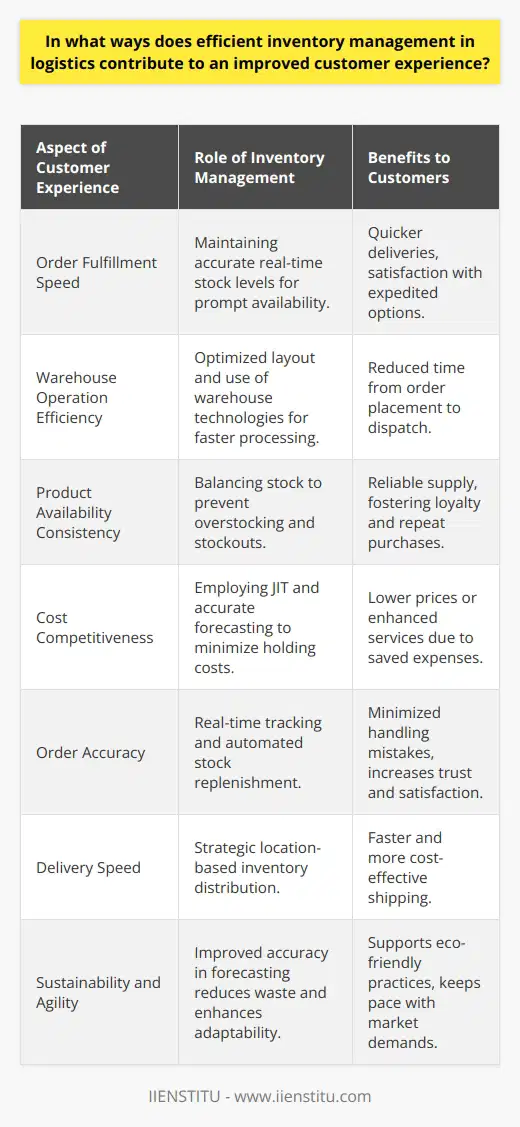
How can advancements in technology and data analytics enhance logistics management for the benefit of customers?
**Technological Advances in Logistics Management**
Advancements in technology and data analytics play a significant role in enhancing logistics management, ultimately benefiting customers. Integration of innovative technologies, such as artificial intelligence (AI), internet of things (IoT), and blockchain, have dramatically improved logistical processes.
**AI-driven Optimization**
AI-driven systems facilitate efficient route planning and transportation scheduling. By processing large data sets and considering traffic, weather, and other constraints, AI-based solutions optimize logistics, leading to lower fuel consumption, reduced operational costs, and faster delivery times for customers. Additionally, AI-powered demand forecasting tools enable better inventory management and supply chain coordination.
**IoT for Real-time Tracking**
IoT devices, such as GPS trackers, radio-frequency identification (RFID) systems, and sensors, facilitate real-time data collection and monitoring of goods throughout the supply chain. This seamless flow of information allows businesses to promptly address any shipment issues, mitigate disruptions, and optimize inventory levels. Consequently, customers receive their orders more swiftly and accurately.
**Blockchain for Enhanced Transparency**
Blockchain technology ensures supply chain transparency, traceability, and time-stamped data storage, instilling confidence in customers about the origin and authenticity of their goods. Further, by streamlining documentation and automating transaction processes using smart contracts, blockchain reduces paperwork, minimizes human error, and expedites shipping operations.
**Predictive Analytics for Customer Satisfaction**
Data analytics tools empower businesses to analyze customers' purchasing habits, preferences, and requirements, shaping personalized experiences and improving customer retention. By leveraging predictive analytics, companies can enhance their logistics management, proactively addressing potential problems before they escalate, and maintaining high standards of customer service.
In conclusion, the incorporation of advanced technology and data analytics into logistics management augments supply chain efficiency, delivery speed, transparency, and customer satisfaction. As businesses continue to adopt and adapt to technological innovations, they will strengthen their competitive advantage and ensure the highest quality of service for their clients.
